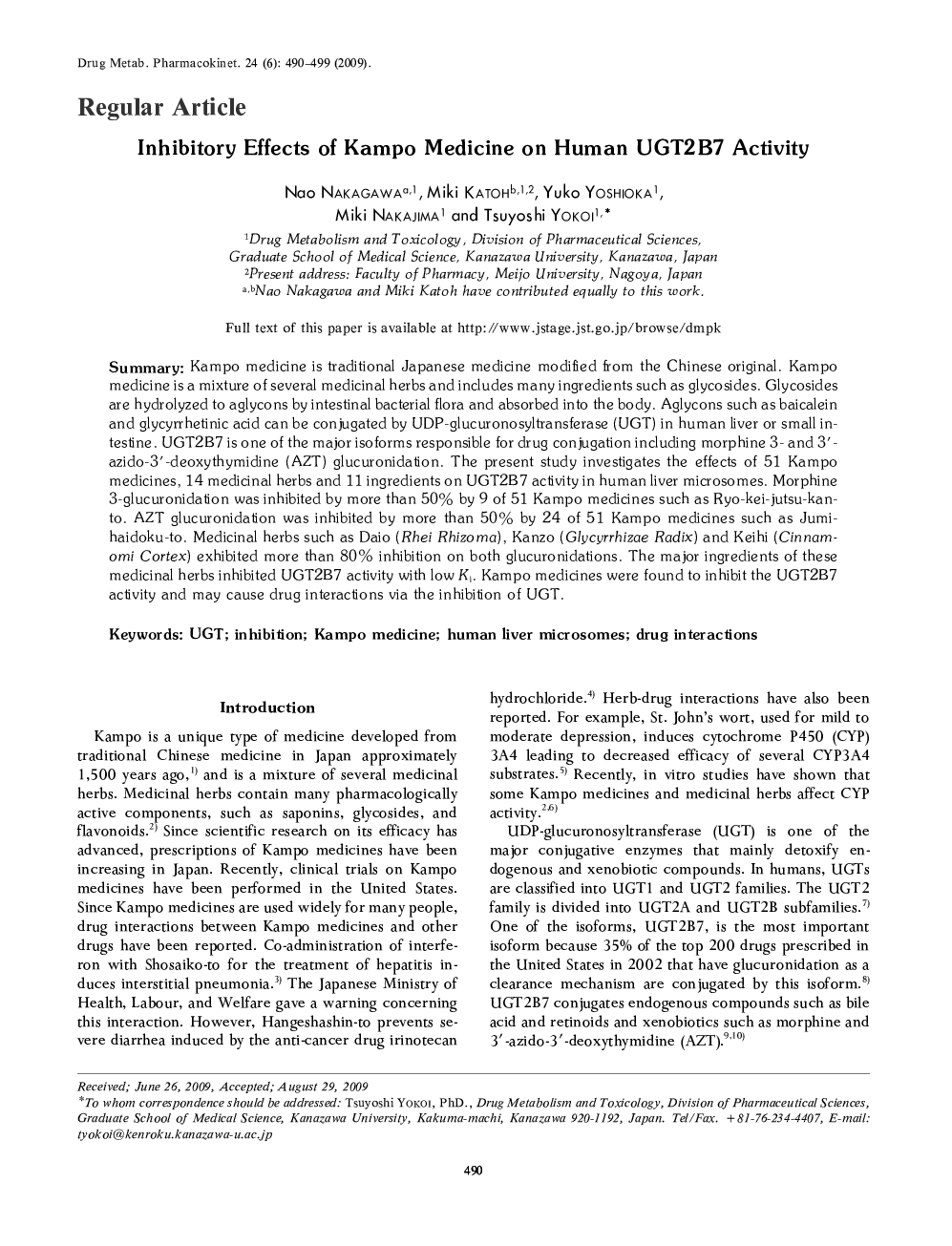| Article ID | Journal | Published Year | Pages | File Type |
|---|---|---|---|---|
| 2479303 | Drug Metabolism and Pharmacokinetics | 2009 | 10 Pages |
Summary:Kampo medicine is traditional Japanese medicine modified from the Chinese original. Kampo medicine is a mixture of several medicinal herbs and includes many ingredients such as glycosides. Glycosides are hydrolyzed to aglycons by intestinal bacterial flora and absorbed into the body. Aglycons such as baicalein and glycyrrhetinic acid can be conjugated by UDP-glucuronosyltransferase (UGT) in human liver or small intestine. UGT2B7 is one of the major isoforms responsible for drug conjugation including morphine 3- and 3'- azido-3'-deoxythymidine (AZT) glucuronidation. The present study investigates the effects of 51 Kampo medicines, 14 medicinal herbs and 11 ingredients on UGT2B7 activity in human liver microsomes. Morphine 3-glucuronidation was inhibited by more than 50% by 9 of 51 Kampo medicines such as Ryo-kei-jutsu-kan-to. AZT glucuronidation was inhibited by more than 50% by 24 of 51 Kampo medicines such as Jumi-haidoku-to. Medicinal herbs such as Daio (Rhei Rhizoma), Kanzo (Glycyrrhizae Radix) and Keihi (Cinnamomi Cortex) exhibited more than 80% inhibition on both glucuronidations. The major ingredients of these medicinal herbs inhibited UGT2B7 activity with low Ki. Kampo medicines were found to inhibit the UGT2B7 activity and may cause drug interactions via the inhibition of UGT.
